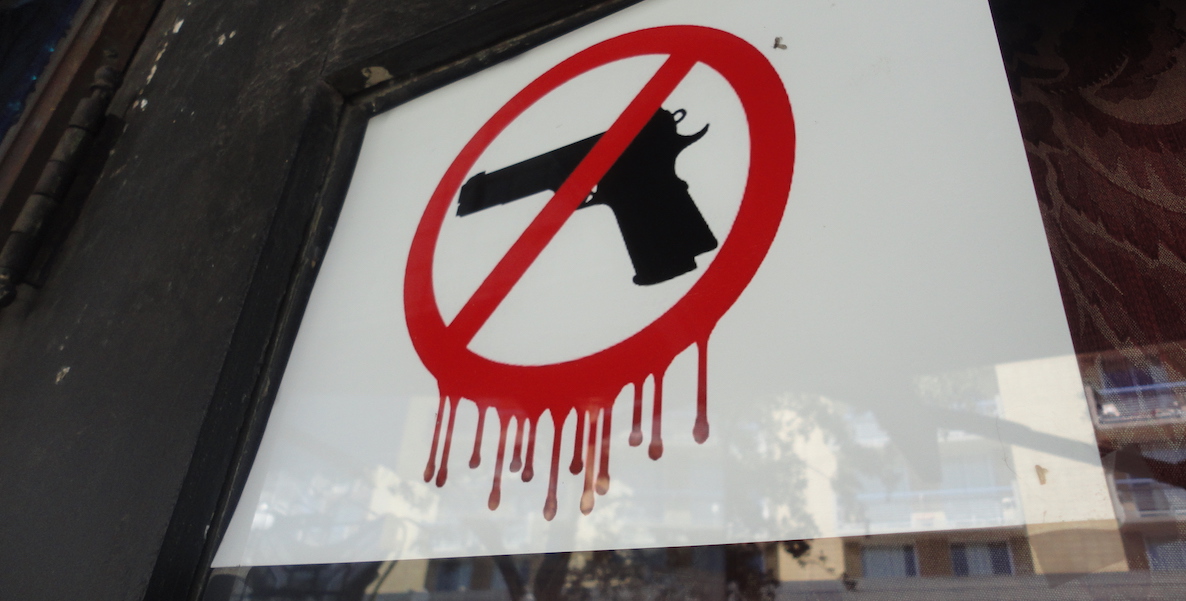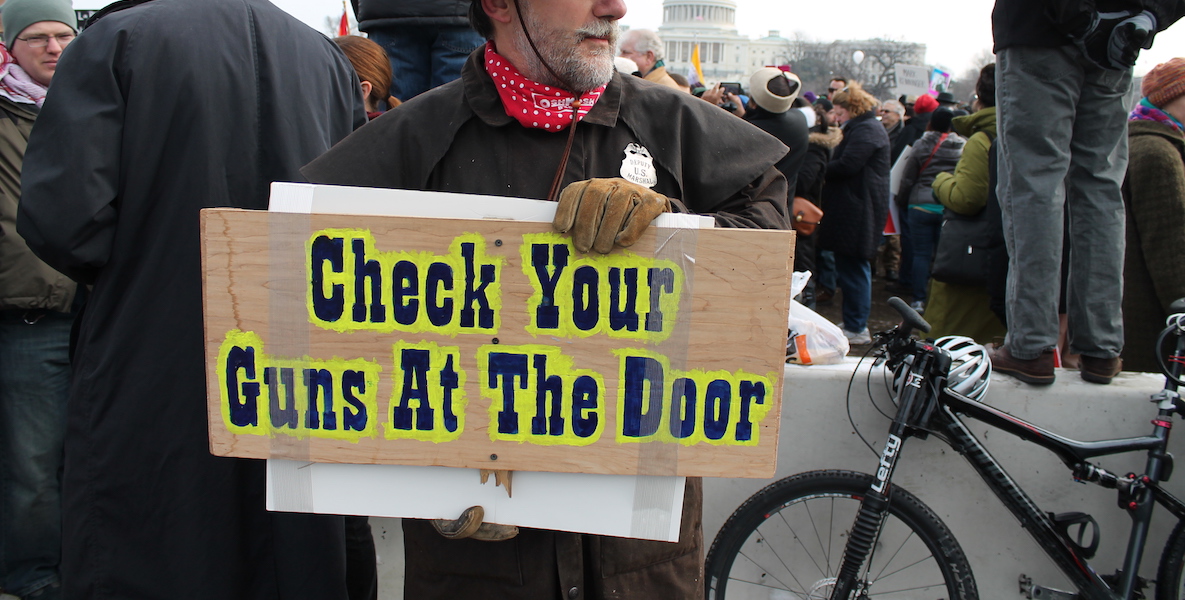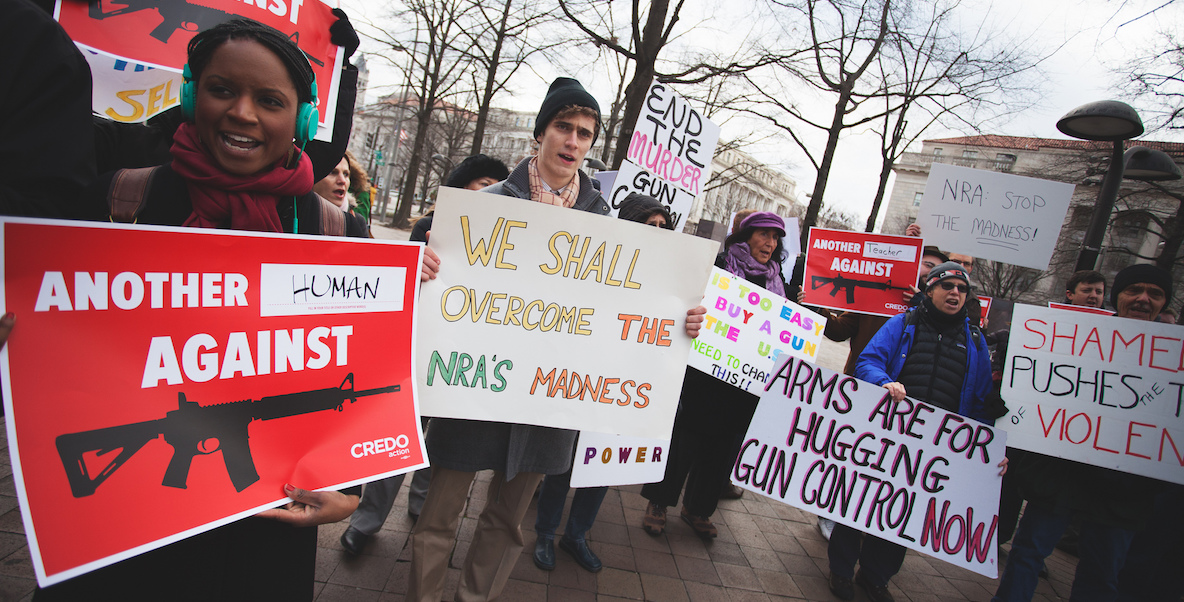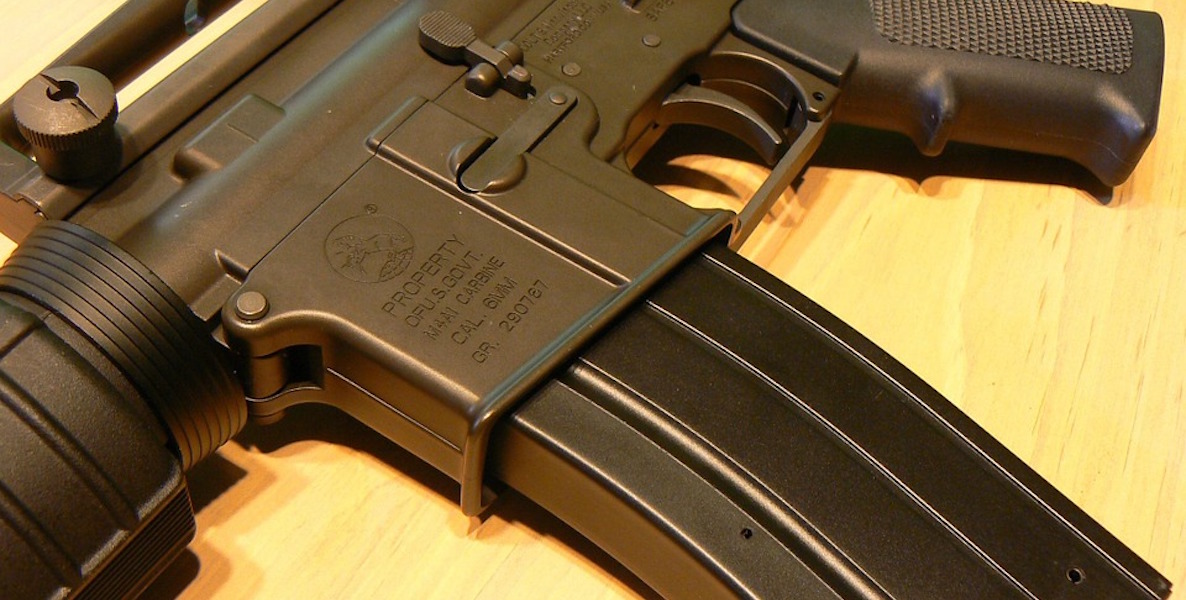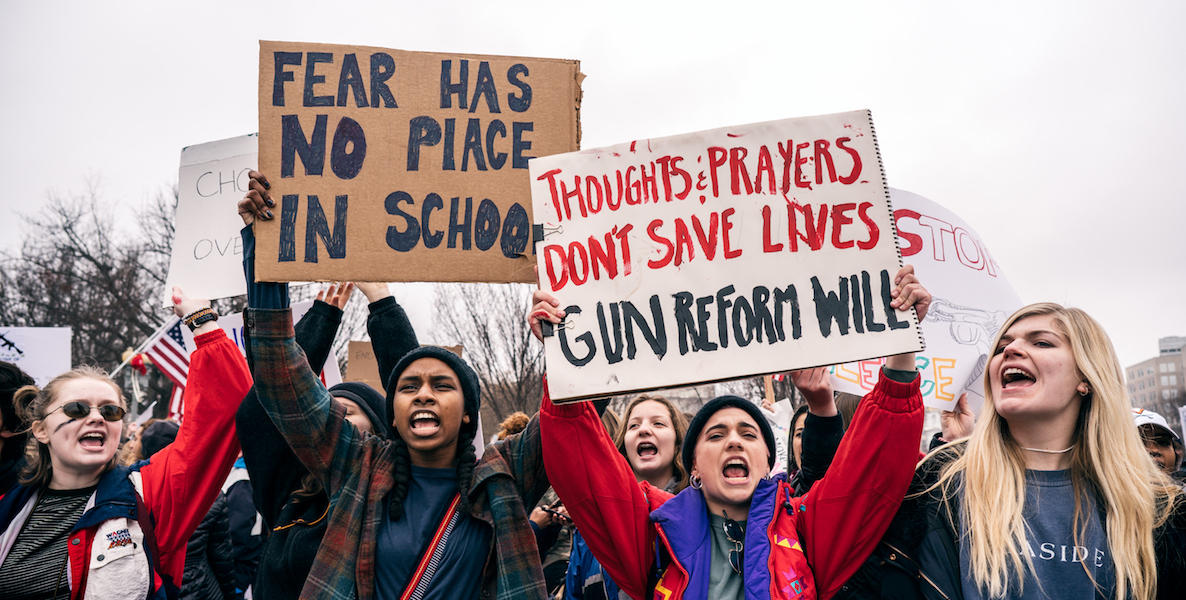On Valentine’s Day this year, Conestoga High School senior Ria Coen Gilbert was getting ready to celebrate her 18th birthday, just one day later. Then she learned of the horrifying events unfolding in Florida, where a young man with a semi-automatic weapon stormed into Marjory Stoneman Douglas High School and killed 17 people, many of them students like herself.
What should have been a celebration turned into a sobering moment for Coen Gilbert, one filled also with a sense of guilt—she was reminded that her work with Everytown for Gun Safety had recently dropped off, as society (and we are all guilty of this) gets swept up so quickly by the next tragedy.

Prefer the audio version? Listen to this article on CitizenCast below.

Still, Coen Gilbert was quick to get to work along with more than 10 other student representatives from each grade, to plan the Conestoga High School Walkout, set to take place this Wednesday. At 10 am, an estimated 1,500 of the 2,000 students at the school will leave their 4th period classes and participate in a 17-minute walkout, both in honor of the 17 victims of the Stoneman Douglas High School shooting in February and to protest Congress’ inaction to “do more than tweet thoughts and prayers in response to the gun violence plaguing our schools and neighborhoods.”
“We want change,” Coen Gilbert says. “We feel like we’ve kind of been forgotten by policy makers and while we’re not explicitly saying what those changes should be, we are saying this needs to be a conversation.”
Many would argue the conversation Coen Gilbert talks about is long overdue and owed to students, families, and teachers in high schools across the country who are living and working in environments that no longer feel safe. According to a 2017 Pew Center study, 44 percent of U.S. adults say they personally know someone who has been shot. And so far, the number of teens between the ages of 12 and 17 who have been killed or injured because of gun violence is already up to 514 in 2018 alone.
“It’s our lives, and we are just kids, except now we’re going to speak out,” Coen Gilbert says. “I’ve been raised to be outspoken, so I’m happy to use my voice for people who can’t do it for themselves. That’s kind of my goal in life.”
While those numbers are staggering, students are taking back control of their futures by raising their voices, a movement largely led by the survivors in Florida that has now spread across the country. In Philadelphia, over 40 schools will be participating in the March 14 walkout and many will host guest speakers, offer pen and paper to write letters to Stoneman Douglas students, and offer small group discussions for students and faculty to share their thoughts.
The walkout may also shine a light on something that many Philly students of color have faced—and organized around—for years: Everyday violence in their neighborhoods. Black students from the Philadelphia Student Union, and from schools like Mastery Shoemaker and Science Leadership Academy have pointed out that the mostly white Parkland students have achieved what they have not—attention from a sympathetic media, celebrity endorsements, a national uprising in their name. (Acknowledging this, some Parkland students met last week with Chicago student activists, to combine efforts.)
As they join their peers on Wednesday, and again on April 20—the anniversary of the first mass school shooting, at Columbine—these students are marching for more gun control, not just to prevent mass shootings, but to staunch the everyday violence they witness in the city.
This is an issue Kaila Caffey, a senior at Central High School, believes is at the root of the discussion around guns today. As president of her school’s Student Association Council she helped plan the walkout happening on the front lawn of her school and has played a role in other efforts surrounding school safety.
![]() In the past, Caffey—who is a current member of the Philadelphia Student Union, a youth-led organization advocating for student rights in Philly schools— organized a symposium after a controversial article was published in her school newspaper about police brutality. At the event, speakers came and talked with students about the issue and offered their expert insight on the topic. “There are many students of color in the Philadelphia school district and across the country who are threatened by violence every day by the same people who should be protecting them,” she says.
In the past, Caffey—who is a current member of the Philadelphia Student Union, a youth-led organization advocating for student rights in Philly schools— organized a symposium after a controversial article was published in her school newspaper about police brutality. At the event, speakers came and talked with students about the issue and offered their expert insight on the topic. “There are many students of color in the Philadelphia school district and across the country who are threatened by violence every day by the same people who should be protecting them,” she says.
So where the conversation might end for some when they turn off the nightly news, is a simple reality for many young people in Philly. And Caffey doesn’t view the issues the way the media might—a constant chase for the new trending disaster and devastation—but as something more like a web, one issue connecting to the next. As an activist, she’s seeking ways to fix it.
“I hope this is an opportunity for us to talk about what school safety looks like across the district,” Caffey says. From consistency between more diverse schools and majority black schools, to accessible mental health resources, there are a number of moving pieces that Caffey is ready to hear and speak out about.
Another student at Central, Grace Del Vecchio, the secretary of the Student Council, has also played a key role in planning the protest, which will continue to the General Philadelphia School Walkout at Thomas Paine Plaza if students so choose. She helped organize the participants who will read names and share bios of the students who were lost at Stoneman Douglas and reflect on what it means to be there as a school together.
Del Vecchio is also a member of the superintendent’s student council committee, a group of students from all across the city who meet with Superintendent Bill Hite four times a year. Here, the students talk in depth about the issues Philly is facing and how they can create change. After a student was physically assaulted by an officer in the hallway of a Philadelphia school, the team played a role in creating the School Police Officer Student Complaint form, so students or faculty can formally report an officer and trigger an investigation.
“I really want to bring awareness and I hope people can see what it means to stand in solidarity with students all across the country,” Del Vecchio says.
As the city and the country come closer to the walkout this Wednesday and again later this month and in April, faculty, teachers, security, and the school district are aware of the challenges and potential danger that can occur. Coen Gilbert says the planning has been a long process of ensuring the safety of students comes before anything else. The Conestoga students have also been using social media, like their Instagram account @stogawalkout, to gain awareness and boost attendance for the event, and while most responses have been positive, Coen Gilbert says they’ve run into some negative feedback.
“Now that the senior class is leaving, I want every other grade to step up,” says senior Alanis Schwarzler. “I want them to take action and figure out what’s happening in our country that we can fix as a younger generation.”
“It’s been difficult when you get people who immediately try to pick fights or comment really nasty things,” she says. But she and the other organizers have followed these comments closely and screenshot each one in case it needs to be shared with the principal or administration, they then delete the comment from the page. Though the social media handle is well maintained by members of the group, it still is a cause for disappointment from Coen Gilbert and her peers.
“I think that was the hardest part for me,” she says. “Was seeing people make jokes about what happened in Parkland.”
And for these student organizers, this is far from a joke or an opportunity to get out of class or check your Facebook. For Alanis Schwarzler, a senior at the Arts Academy at Benjamin Rush, this is something she wants to make clear. “Now that the senior class is leaving, I want every other grade to step up,” she says of her art school of around 600 students. “I want them to take action and figure out what’s happening in our country that we can fix as a younger generation.”
In a letter to principals across the city, Hite shared his views on the upcoming day. “We support student’s rights to self-expression and awareness of social issues.” He also encourages faculty to keep in mind those students who don’t wish to participate or hold opposing views and to keep a supportive and safe environment for all.
![]() For now, Coen Gilbert and her peers are looking forward to the walkout as a way to reflect on past events and look ahead to a future where kids can feel safe learning, growing, and just being students. Next fall, Coen Gilbert will start college—either at UC-Berkeley, Brown University, where she was waitlisted after applying Early Decision, or another school she has yet to hear from—to study criminal justice or something similar; the teen has long been passionate about social justice issues. In the last several months, Coen Gilbert has focused on the issue of sex trafficking in Chester County, delivered a TEDtalk about the issue at her high school, and raised over $1,200 for Walk Her Home, an organization that provides support and housing for survivors of human trafficking.
For now, Coen Gilbert and her peers are looking forward to the walkout as a way to reflect on past events and look ahead to a future where kids can feel safe learning, growing, and just being students. Next fall, Coen Gilbert will start college—either at UC-Berkeley, Brown University, where she was waitlisted after applying Early Decision, or another school she has yet to hear from—to study criminal justice or something similar; the teen has long been passionate about social justice issues. In the last several months, Coen Gilbert has focused on the issue of sex trafficking in Chester County, delivered a TEDtalk about the issue at her high school, and raised over $1,200 for Walk Her Home, an organization that provides support and housing for survivors of human trafficking.
Shortly after the shooting, Coen Gilbert started researching and diving back into issues around guns. She thought about what gun reform would really mean and how as a person with family members who rely on hunting for food, she knows they just aren’t using assault rifles like the AR-15 Nikolas Cruz was carrying that day. The bottom line she says, however, is not about her opinion—it’s about voting. After the walkout this Wednesday, Coen Gilbert and her peers will encourage Conestoga students to get involved in the March 24 protest in Washington, D.C., where they’re hoping to set up voter registration tables, and again for the April 20 march.
“We’re just trying to do as much as we can to give power to students’ voices,” she says. Especially to those students she has come across who say they care about these issues, but don’t believe they can really make change. Coen Gilbert says she’s reminded of the Civil Rights movement and the students who fought for their lives, stood their ground, and raised their voices in the most trying times. This is the power she hopes students harness now.
“It’s our lives, and we are just kids, except now we’re going to speak out,” she says. “I’ve been raised to be outspoken, so I’m happy to use my voice for people who can’t do it for themselves. That’s kind of my goal in life.”
Photo: Lorie Shaull via Flickr


